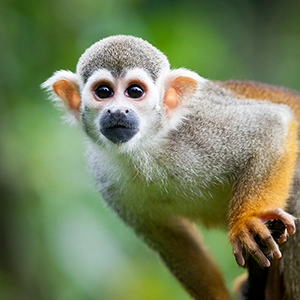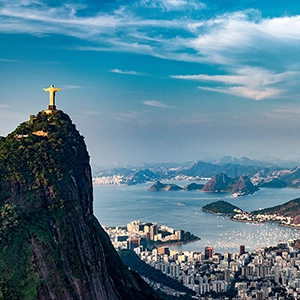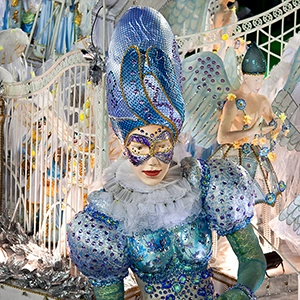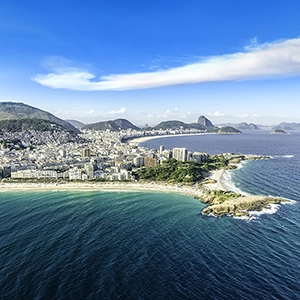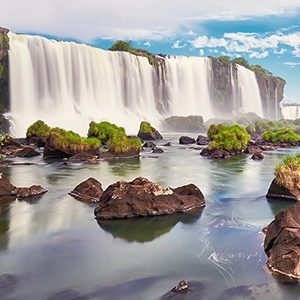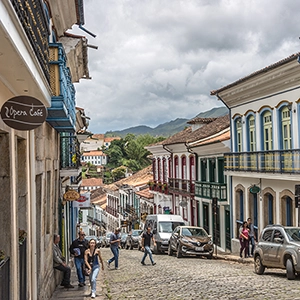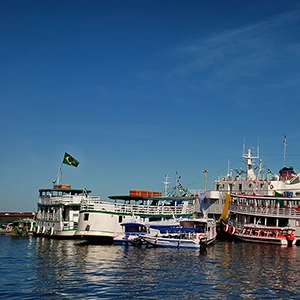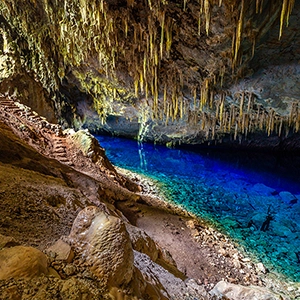Discover The Vibrant Culture Of Salvador Da Bahia

Salvador da Bahia, commonly referred to as Salvador, is the capital of the northeastern Brazilian state of Bahia. With a rich historical background, Salvador is the third-largest city in Brazil and one of the oldest colonial cities in the Americas. As a UNESCO World Heritage Site, this vibrant city is recognized for its cultural and architectural significance. Known as a melting pot of Afro-Brazilian culture, Salvador's dynamic traditions, soulful music, and delicious food are a must for anyone planning a trip to Brazil. In this article, we will explore the various facets of Salvador's vibrant culture.
The History of Salvador da Bahia
The city of Salvador was founded by the Portuguese in 1549, and it served as the capital of Brazil for over two centuries. Salvador played an essential role as an important colonial slave trade port. The influence of African slaves and indigenous people on the city's culture is palpable, making it a unique and diverse destination. Today, Salvador is a multicultural city that blends its African, European, and indigenous roots, creating a captivating cultural atmosphere that is evident in its music, cuisine, religion, and more.
Exploring Salvador's Afro-Brazilian Culture
Salvador is considered to be the heart of Afro-Brazilian culture. Approximately 80% of its population has African ancestry, which is prominently seen in the city's music, dance, food, and religious practices. One of the most significant aspects of Afro-Brazilian culture is Candomblé, an African-originated syncretic religion that has a strong presence in Salvador. Candomblé is a vibrant mix of Yoruba, Fon, and Bantu beliefs, often blended with Roman Catholicism.
Visitors can experience the rich spiritual culture by attending a Candomblé ceremony, where participants honor the Orixás, deities who are also associated with Catholic saints. The vibrant rituals are filled with dancing, drumming, and striking Afro-Brazilian attire.
Music and Dance in Salvador
When it comes to music and dance, Salvador da Bahia does not disappoint. The city's energetic music scene has deep African and Brazilian roots. Some of the most popular music styles include Samba, Axé, and Samba-reggae, which have gained international recognition.
One place to enjoy live music is in the historic neighborhood of Pelourinho, where vibrant music venues offer a variety of styles, from traditional Samba to more modern beats. Attend a live Samba de Roda performance, where people gather in a circle and take turns in the center, showing off their dancing skills. Don't miss out on the opportunity to watch a Capoeira performance, an Afro-Brazilian martial art that combines elements of dance, acrobatics, and music. In Salvador, you can find many Capoeira schools where you can watch or join a practice session.
The Colorful Neighborhood of Pelourinho
One of Salvador's most iconic neighborhoods is Pelourinho, the historic center of the city. A UNESCO World Heritage Site, Pelourinho is known for its well-preserved colonial architecture, colorful buildings, cobblestone streets, and lively atmosphere. This neighborhood houses significant colonial-era churches, such as the Church of São Francisco, adorned with stunning gold leaf designs, and the Church of Nosso Senhor do Bonfim, an important pilgrimage site for Candomblé practitioners and Catholics alike.
Pelourinho is also an excellent place to appreciate Salvador's street life, with many local artisans, vendors, and entertainers throughout its vibrant streets. Make sure to plan your visit to coincide with the Tuesday night "Benção" (Blessing), a lively street party with music, dancing, and food, where both tourists and locals come together to celebrate Salvador's unique culture.
Food and Cuisine in Salvador
Food plays an essential role in Salvador's culture, and the city's cuisine reflects its diverse roots. African, Portuguese, and native Brazilian ingredients and cooking techniques merge to create mouthwatering and unique dishes. Many of the city's typical recipes revolve around seafood, particularly the moqueca, a tasty fish stew cooked in a fragrant blend of coconut milk, palm oil (dendê), and spices. Acarajé, a popular street food, consists of a deep-fried black-eyed pea cake filled with shrimp, vatapá (a spicy paste made from ground nuts and shrimp), and caruru (an okra-based sauce).
For something sweet, try the famous quindim, an egg yolk and coconut dessert. One of the best ways to experience Salvador's cuisine is by sampling these and other traditional dishes at the various street food stalls and open-air markets, such as Feira de São Joaquim and the bustling Mercado Modelo.
Festivals and Celebrations in Salvador da Bahia
Salvador is a city that loves to celebrate, and its festival calendar is packed with lively events reflecting its diverse culture. The most famous celebration is the Salvador Carnival, which often rivals the Rio de Janeiro Carnival in size and spectacle. The Salvador Carnival features its unique "trio elétrico" mobile stages and "bloco" street parties, attracting millions of visitors each year.
Religious celebrations are also important in Salvador. The Festa de Nosso Senhor do Bonfim, held in January, is a popular event where people dress in white, attend church services, and participate in a lively procession through the city. During the Lavagem do Bonfim, participants symbolically wash the steps of the Church of Nosso Senhor do Bonfim in a tradition rooted in Candomblé.
Discovering Salvador's Vibrant Culture
Whether indulging in delicious food, immersing yourself in its music and dance, or participating in colorful festivals, a visit to Salvador da Bahia will not leave you disappointed. The city's richness in culture and history coupled with its friendly and diverse population makes for an unforgettable travel experience. Discover Salvador's vibrant culture and embark on a journey into the heart of Afro-Brazilian heritage, and enjoy everything this enchanting city has to offer.

